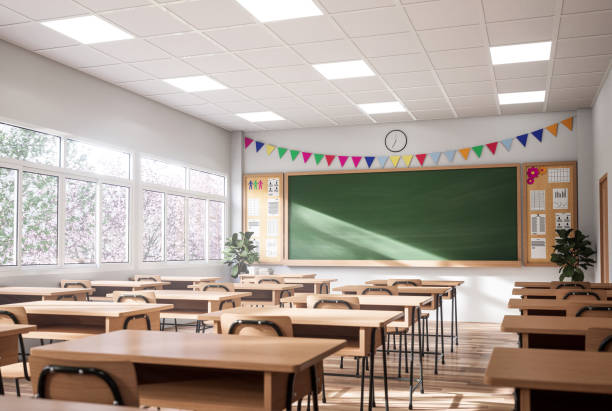Understanding the Difference Between SMA and SMK in Indonesia: A Complete Guide by The Bali Lawyer



Education is one of the most important foundations in shaping the future of Indonesia’s young generation. As students complete junior high school (SMP), they face an important choice: whether to continue their studies at SMA (Sekolah Menengah Atas) or SMK (Sekolah Menengah Kejuruan). Although both are secondary education institutions, their objectives, curriculums, and outcomes are quite different.
At The Bali Lawyer, we aim to help not only expatriates living in Indonesia but also locals who need clear and reliable information about various aspects of life in the country — including the education system. In this article, we explain in detail the differences between SMA and SMK in Indonesia, their benefits, and how to decide which one is best suited for a student’s goals.
What is SMA (Sekolah Menengah Atas)?
SMA, or Senior High School, is an academic-based educational institution in Indonesia that prepares students for higher education. The focus of SMA is on developing knowledge, analytical thinking, and academic abilities. The education system at SMA usually runs for three years, from Grade 10 to Grade 12.
SMA students study general subjects such as:
Mathematics
Science (Physics, Chemistry, Biology)
Social Studies (Economics, Sociology, Geography, History)
Indonesian Language and Literature
English Language
Civic Education and Religion
Physical Education and Arts
The SMA system encourages students to build a strong academic foundation that will prepare them for university entrance exams and higher education.
What is SMK (Sekolah Menengah Kejuruan)?
SMK, or Vocational High School, is designed for students who want to gain practical skills and prepare directly for the workforce after graduation. Like SMA, the duration of SMK is also three years, though some programs may extend to four years depending on the specialization.
SMK schools provide both general education and specific technical or vocational training. Students can choose from various programs such as:
Tourism and Hospitality
Information Technology
Culinary Arts
Accounting and Business Management
Engineering and Mechanics
Fashion Design
Agriculture and Fisheries
SMK combines classroom learning with hands-on practice, often including internships (Praktek Kerja Lapangan or PKL) in relevant industries. This structure allows graduates to immediately enter the workforce with relevant experience and skills.
Main Differences Between SMA and SMK
Understanding the key distinctions between SMA and SMK can help students and parents make informed decisions. Below are the main differences:
Objective and Focus
SMA focuses on academic education to prepare students for university.
SMK focuses on vocational education to prepare students for employment or entrepreneurship.
Curriculum Structure
SMA students learn more theory-based and general subjects.
SMK students spend more time on practical lessons related to their chosen field.
Duration and Internships
SMA programs are three years long.
SMK programs are three to four years, including internships in real work environments.
Post-Graduation Options
SMA graduates typically continue to university.
SMK graduates can choose to work immediately, start a business, or continue to a higher vocational education.
Skill Orientation
SMA builds academic and analytical skills.
SMK develops technical and hands-on skills for specific industries.
Advantages of Choosing SMA
Choosing SMA can be ideal for students who aim to continue their education at the university level. Some advantages include:
Broader Academic Foundation: SMA students receive well-rounded knowledge that supports a variety of university majors.
University Preparation: SMA programs align closely with university entrance requirements.
Flexibility for Career Choices: With a general education background, graduates have more flexibility in choosing their future fields of study or careers.
Critical Thinking Development: The curriculum helps build reasoning and analytical abilities that are valuable for higher education.
Advantages of Choosing SMK
SMK offers a different but equally valuable path for students. Here are some of the main benefits:
Practical and Job-Ready Skills: Students gain real-world experience and technical know-how for immediate employment.
Work Placement Opportunities: Many SMK students are recruited by companies even before graduation due to internship programs.
Entrepreneurship Training: SMK programs encourage independence by teaching business and management skills.
Industry-Specific Focus: The specialization helps students master a specific field such as IT, hospitality, or engineering.
Hands-On Learning: The focus on practice ensures students are confident in applying their skills outside of school.
SMA or SMK: Which One is Right for You?
The choice between SMA and SMK depends on the student’s interests, strengths, and future goals.
Choose SMA if you are more interested in theoretical learning and plan to go to university.
Choose SMK if you prefer practical, hands-on education and want to start working soon after graduation.
Parents and students should also consider long-term goals, personality types, and career aspirations before making a decision.
How the Indonesian Government Supports SMA and SMK Education
The Indonesian Ministry of Education and Culture has developed programs to ensure both SMA and SMK are well-supported. The government’s goal is to balance academic and vocational education to meet national development needs.
SMK institutions are often encouraged to collaborate with industries and companies through dual system education, where students split their time between school and workplace training. Meanwhile, SMA schools continue to enhance their academic standards to prepare students for global competitiveness.
Why Understanding the Education System Matters for Expats and Investors
For expatriates living in Indonesia or foreign investors establishing businesses here, understanding the education system is essential. Knowing how SMA and SMK operate can help in several ways:
Hiring Local Talent: Employers can identify whether candidates from SMK or SMA backgrounds best fit their business needs.
Education Planning for Children: Expats can decide whether to enroll their children in SMA or SMK based on future academic or career goals.
Legal and Documentation Support: For parents or companies sponsoring foreign education or employment, proper documentation and understanding of the education structure are important for visa and permit applications.
At The Bali Lawyer, we provide professional legal support for expatriates, investors, and local clients who require assistance with education-related documentation, school registration, and compliance with Indonesian regulations.
Legal Aspects Related to Education in Indonesia
Although education is primarily a social issue, it also has legal implications — particularly for expatriates or companies operating in Indonesia. Schools, including SMA and SMK, must comply with national education laws, while foreign parents may need to fulfill certain legal requirements to enroll their children in Indonesian schools.
Our legal team at The Bali Lawyer can assist with:
School registration and documentation for expatriate families
Education-related visa and permit support
Translation and legalization of school certificates
Understanding local education laws and regulations
Why Choose The Bali Lawyer
At The Bali Lawyer, our mission is to provide trusted, professional legal guidance for individuals and businesses in Bali. Whether you’re an expatriate family settling in Indonesia, a business owner managing local staff, or someone looking for legal clarity on education matters, we are here to help.
Our expertise includes property law, immigration, notary services, and educational legal documentation. We are committed to offering clear, accurate, and practical legal solutions tailored to your specific needs.
The choice between SMA and SMK in Indonesia is not merely about education — it’s about shaping a student’s future path. SMA focuses on academic excellence and preparation for university, while SMK emphasizes technical training and career readiness. Both systems play an essential role in Indonesia’s educational and economic development.
Understanding these differences helps parents, students, and even expatriates make informed decisions. And for those needing guidance in navigating Indonesia’s legal framework — including education-related documentation — The Bali Lawyer stands ready to assist.
If you are looking for reliable legal advice in Bali regarding education, property, or immigration, contact The Bali Lawyer today. We provide clear, professional, and comprehensive legal assistance to help you stay compliant and informed in Indonesia.
